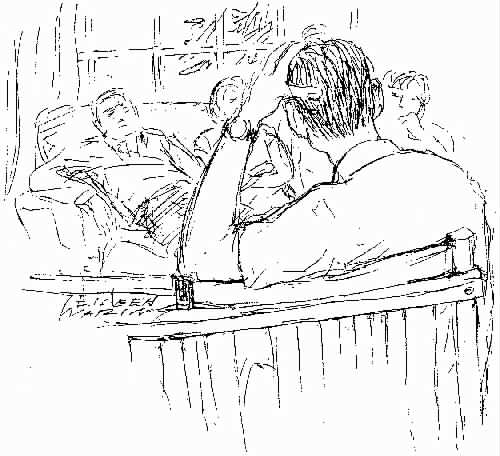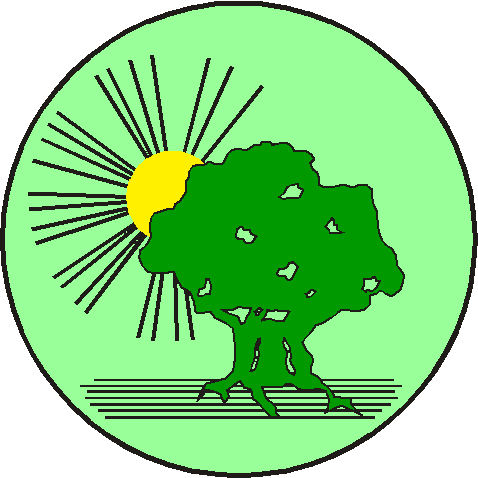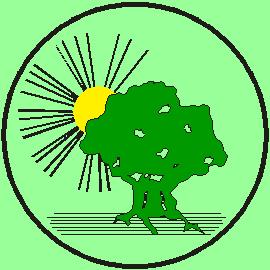Education for Action:
An Experience with Macro-Analysis
by Pamela Haines
Friends Journal, February 1, 1974, pp. 79–80
THE MACRO-ANALYSIS MOVEMENT (not the same thing as macrobiotics, please) started several years ago with a small group of Quakers and others who were deeply involved in the peace and civil rights movements, but who also were increasingly concerned about understanding how specific issues fit into the big (macro) picture so that they could develop a coherent vision of a new society and make their actions more consistent with their long-term goals.
What, for example, is the logical response of the peace movement to the official ceasefire in Vietnam? Is supporting foreign aid programs the best way to help the internal development of poor countries? Should we encourage labor demands for increased wages or instead encourage a general reduction of the U.S. standard of living? What are the ramifications of the grape boycott on small farmers, and what does that say about U.S. agriculture? Will pressure for strict anti-pollution laws just move our dirty and dangerous industries to poor countries? How do all these issues affect our own daily lives?
How do we begin to cope with such questions? Some of us undoubtedly and understandably are tempted to give up and go back to minding our own business. Others seize an issue in desperation and pour energy into it because we have to be doing something. But our religion calls us neither to passivity in the face of evil, nor to fuzzy thinking. Macro-analysis seminars, as they have evolved over the past four or five years, are uniquely equipped to counter both those tendencies.
The seminars nurture human potential by helping people realize that anybody with normal intelligence and an open mind, a global perspective, an awareness of human values that don’t get into the statistics, and without a vested interest in preserving the status quo, is probably better equipped than most experts to grasp the interrelationships between problems and to come up with creative responses to them. The seminars also provide access to information and methods of sharing and applying it practically that give power to people.
Designed to last for about 20 three-hour sessions, a seminar is divided into five major sections. The first explores the ecological system and the finite limitations of our world — scarce resources, pollution, population. The second deals with U.S. economic, political and military relations with the Third World. The third focuses on U.S. domestic problems, particularly economic priorities, distribution of wealth and the position of minority groups. The fourth presents possible alternatives: utopian systems, alternative institutions, social examples. The fifth is concerned with methods of social change, or how to get there from here.

The emphasis throughout these seminars is on practical, not theoretical, knowledge. A wide variety of readings concentrates on social change. Regular time is also structured in for participants to explore the impact of what they have learned on their own lives and activities, to counteract the tendency toward “paralysis of analysis” where persons become trapped either in the apparent hopelessness of the situation or in the academic mind-set that learns only what more must be learned and never gets around to relating to the real world, or to making the long leap from reflection to action.
Perhaps as important as the content is the seminar process. As a result of very practical — and often painful experience — and by borrowing heavily from Quaker tradition as well as selected modern methods, a body of group process tools has been developed which combines a fairly tight structure with rotation of leadership roles and egalitarian decision-making. The mutually agreed-upon discipline frees up energy and allows people to discover information for themselves and to share it with each other in a focused, efficient way.
The manual, On Organizing Macro Analysis Seminars, provides step-by-step instructions and readings so that any group can start its own seminar without outside help. And they do. More than thirty seminars all over the country have been started within the last year, and the movement is spreading rapidly. The practical results of seminars range from steps toward less personal consumption to blockading of ammunition ships. Most important is the feeling of empowerment that comes when small actions are seen as integral parts of a larger movement that has direction and makes sense.
The organized force behind the whole macro movement is a collective of six or eight people who write and update the manual, keep track of new readings, facilitate the formation of seminars, and work on the development of alternatives to the twenty-week variety in order to share the macro experience more widely. This group uses the same discipline and process in our group functioning as in the seminars. One of these processes, excitement sharing, encourages positive thinking and awareness of each individual at the beginning of each seminar and collective meeting. Let me end by sharing my own personal excitement with macro-analysis.
I’m excited by its interdisciplinary approach. I find the process of connecting things up and beginning to see how they all fit together and where I fit in very satisfying.
I’m excited by the purposefulness that it gives to my reading; when I come across a particularly perceptive or provocative article, I can now share it with hundreds of people.
I’m excited about a group process that allows meetings to be efficient, enjoyable and informative all at once, and actually works a lot of the time.
I’m excited by the freedom that comes from operating without vested interests. The manual does not claim to be the final truth about anything. The present draft only records what has evolved to this point and improvements are actively sought out. No ideology is set forth; people are encouraged to read and think critically, then discover for themselves how that knowledge will affect their lives. Since most of the work of the collective is volunteer, we aren’t obliged to do anything merely for the sake of pleasing a higher authority. And when you could make a very pleasant income from leading seminars but choose instead to say that seminars don’t need leaders, certainly not after the first several weeks, then you must be doing something right.
I’m excited by working in the collective — sharing decision-making, rewarding work, not-so-rewarding work, struggling together with difficult questions of priorities and analysis, playing with and caring for each other.
I’m excited by the potential of the macro-analysis process for sharing information in a variety of ways. I’m beginning to understand that knowledge really can be power, that education can be a potent tool for social change if people are able to learn about things that matter to them, then act accordingly, all in the context of a wider analysis.
If you are interested in sharing this excitement by starting a seminar, or would like more information, write: Philadelphia Macro-Analysis Collective [address]
 START
START  Back
Back